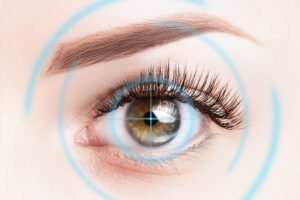Some of the most common eye surgeries most people end up having in their lifetime is LASIK and cataract surgery. Although, most people want to know if they can have both of these surgeries, or just one. The simple answer is yes, you can have surgeries for both LASIK and cataracts. However, there are a few things you should know before you go down either one of these routes.
CATARACT SURGERY AFTER LASIK
If you’ve had LASIK surgery to help correct your vision, you might now be noticing how your eyesight could be going in the opposite direction you were hoping for. This doesn’t mean your LASIK surgery wasn’t a success, it could mean that you’re developing cataracts. Many eye procedures have the risk of this development, as well as the simple fact you might be approaching the age where cataracts are common for development.
If you’re noticing this, or have been diagnosed with cataracts, you might be considering corrective cataract surgery. When you meet with your doctor who will potentially perform your surgery, be sure that you bring copies of your medical records regarding you previous LASIK surgery. They need to be aware of all that was previously done, this way they can identify what corrective procedure is the right choice for you at this time.
Again, with any procedure, you need to make sure your surgeon goes over all the potential risks of the surgery with you, this way you’re aware of possible outcomes.
LASIK AFTER CATARACT SURGERY
Many people, after having cataract surgery, might look at LASIK as an option to help bring their vision to an even better level. This is something that is not as uncommon as some might think it is. LASIK surgery can be performed after previously having cataract surgery, but you should wait anywhere from 3-6 months before you head down this new path.
Again, you will want to supply your surgeon with all medical records that pertain to the previous procedure. This will help prevent any potential complications from occurring. Your surgeon should inform you if there was any extensive vision loss as a result of the cataracts themselves, they most likely can’t reverse that with the use of LASIK. But the undamaged areas will be vastly improved.
If you’re wanting to find out if you’re a candidate for either of these procedures, contact your opthamologist, and they will be able to refer you to the proper facilities for either procedure.
Contact Us
If you have more questions about LASIK procedures, get in touch with us.
Related Blogs

Timing is Everything: When to Consider LASIK After Nursing for Optimal Results
Timing is everything when considering LASIK eye surgery after nursing, and understanding the optimal period for this procedure is vital for both mother and baby.

Cataract Surgery: Restoring Clarity and Confidence
Cataract surgery is a transformative procedure that offers a new lease on clear vision and renewed confidence. As cataracts cloud the eye’s lens, causing blurred

Intralase LASIK Explained: What to Expect Before, During, and After the Procedure
Intralase LASIK is a cutting-edge procedure that offers a safe, effective, and precise way to enhance vision compared to traditional LASIK methods. Understanding what to
